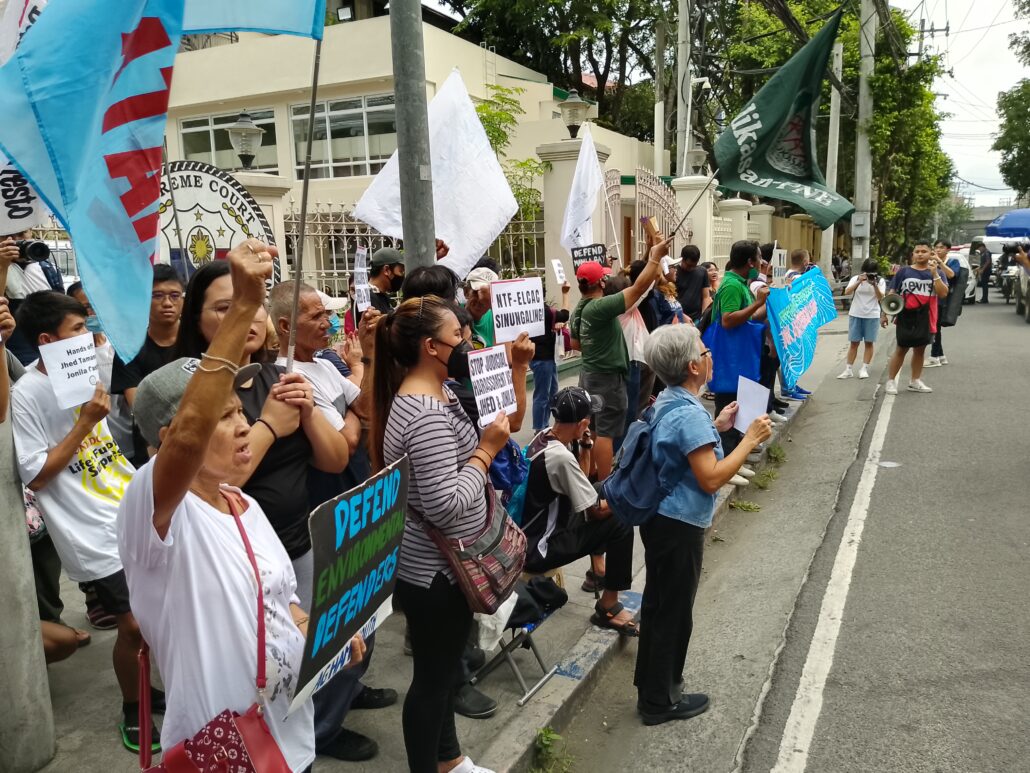Jhed, Jonila fail to attend UN rights council session
GENEVA, Switzerland—Environment activists Jhed Tamano and Jonila Castro, alleged military abduction survivors, failed to attend the ongoing 55th regular session of United Nations Human Rights Council (UNHRC) in this city due to the filing of grave defamation charges against them by the Department of Justice, the Philippine UPR (Universal Periodic Review) Watch revealed.
Wanting to personally narrate their ordeal before the international body, Tamano and Castro were forced to forego their trip to attend to court hearings after the 70th Infantry Battalion of the Philippine Army’s 7th Infantry Division filed the new charges against them later this month.
The Philippine UPR Watch condemned the Department of Justice’s recommendation to file the grave defamation charge and elevating it to the courts as “a deliberate attempt at preventing them from telling the world of their ordeal.”
“Jhed and Jonila wanted to deliver oral interventions at the UNHRC general debates as survivors of abduction by the Ferdinand Marcos Jr. government that also tried to falsely present them to the public as so-called rebel surrenderees,” Karapatan legal counsel and Philippine UPR Watch delegate Atty. Ma. Sol Taule said.
Castro and Tamano were also scheduled to speak at various regular session side events at the UN as well as in various other countries throughout Europe in the coming weeks.
“Both survivors had already secured travel visas but were forced to cancel when the DOJ and 70th Infantry Battalion of the Philippine Army’s 7th Infantry Division filed new trumped up charges against them,” Taule added.
Castro and Tamano each posted bail last February 21 at the Dona Remedios Trinidad Municipal Trial Court in Bulacan on charges the anti-Manila Bay reclamation activists deliberately defamed the military and the Ferdinand Marcos Jr. government in a press conference organized by the National Task Force to End Local Communist Armed Conflict last September 19 in Plaridel, Bulacan.
“That is not prosecution but political persecution,” Taule said.
In an earlier statement, Castro and Tamano said the DOJ is in collusion with the NTF-ELCAC and the Armed Forces of the Philippines in telling the courts a “patchwork” of stories to save face and cover up its practice of abduction and presentation of fake surrenderees.
“This decision proved that our questioning of the DOJ’s capability to conduct fair investigations was correct, adding the department conveniently ignored the fact that they were kidnapped and coerced into surrendering and admitting that they were members of Communist groups,” the young environmentalists said after posting bail last month.
Despite their physical absence however, Castro and Tamano’s ordeal shall be told in side events and dialogues with permanent missions of UN member states as well as officials of international civil society organizations in the UN nonetheless, the Philippine UPR Watch said.
“If the government thinks that it could cover up its abductions and other human rights violations by preventing Jhed and Jonila from personally telling their ordeal to the world, it is mistaken,” Center for Environmental Concerns executive director Lia Mai Torres said.
Torres added that foreign governments are very interested in knowing more about the case of the two young environmental defenders who bravely revealed their abduction and 17-day imprisonment in a Philippine Army camp in front of their abductors.
“The case of Jhed and Jonila helps reveal that human rights situation is no better under Marcos Jr. and environmental defenders are among the victims,” Torres said.
A network of human rights groups, churches, and people’s organizations, the Philippine UPR Watch is an active participant in UNHRC sessions through oral interventions, forums, dialogues and reports on the state of human rights in the Philippines. # (Raymund B. Villanueva)
[DISCLOSURE] The reporter is a member of the PH UPR Watch delegation as chairperson of the People’s Alternative Media Network that also spoke with UN special rapporteur on freedom of expression and opinion Irene Khan in her visit to the Philippines earlier this year.

